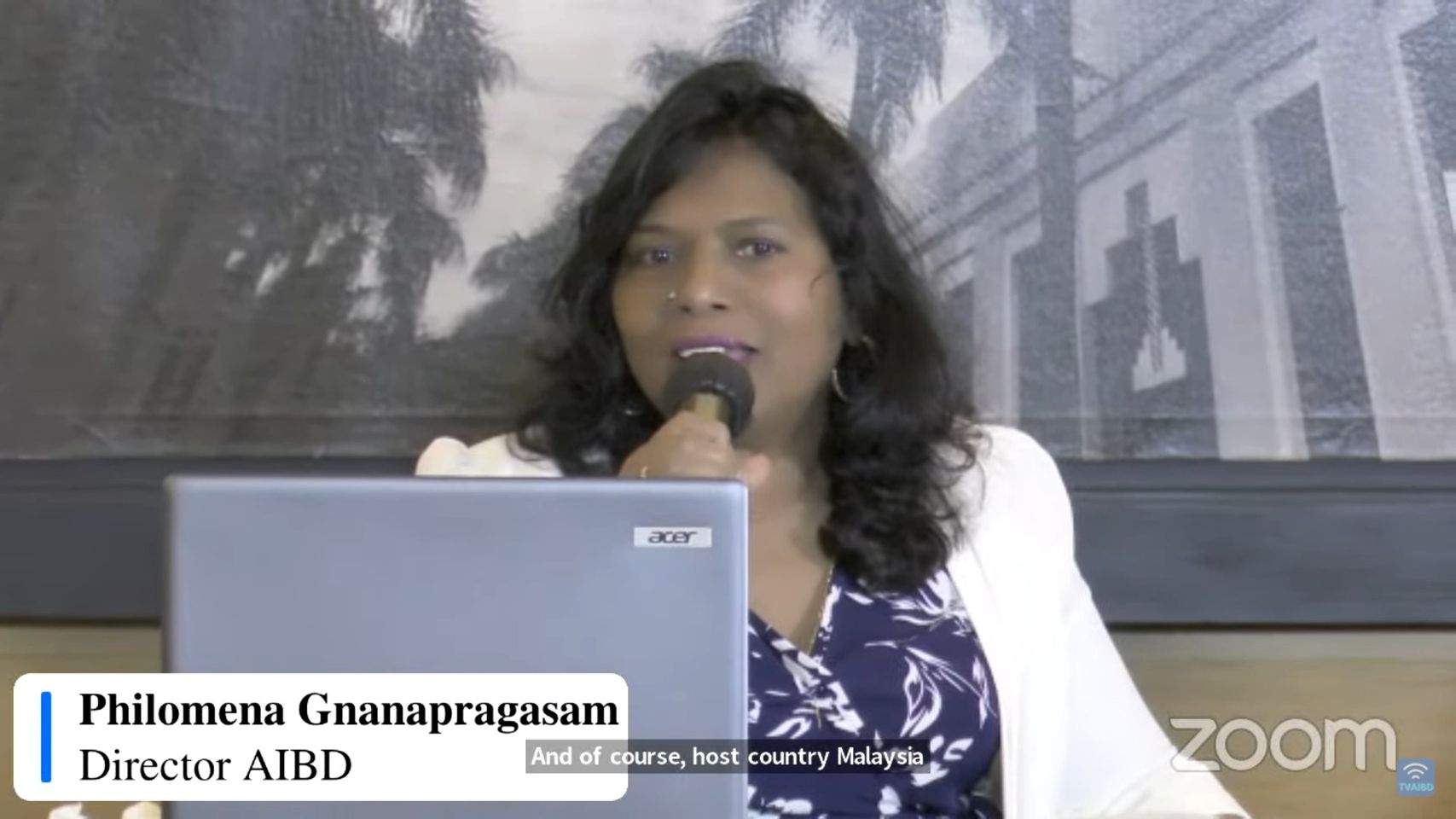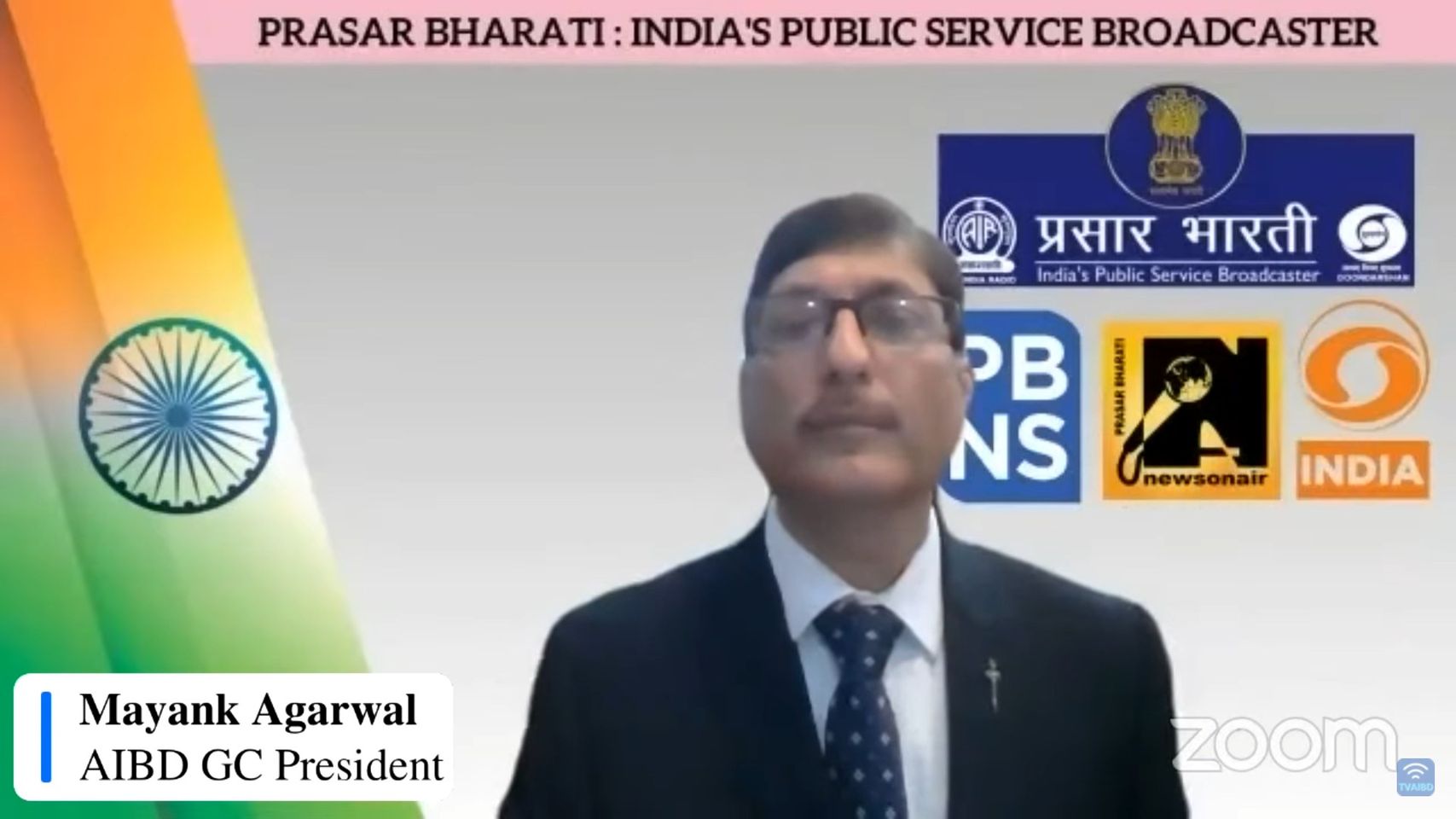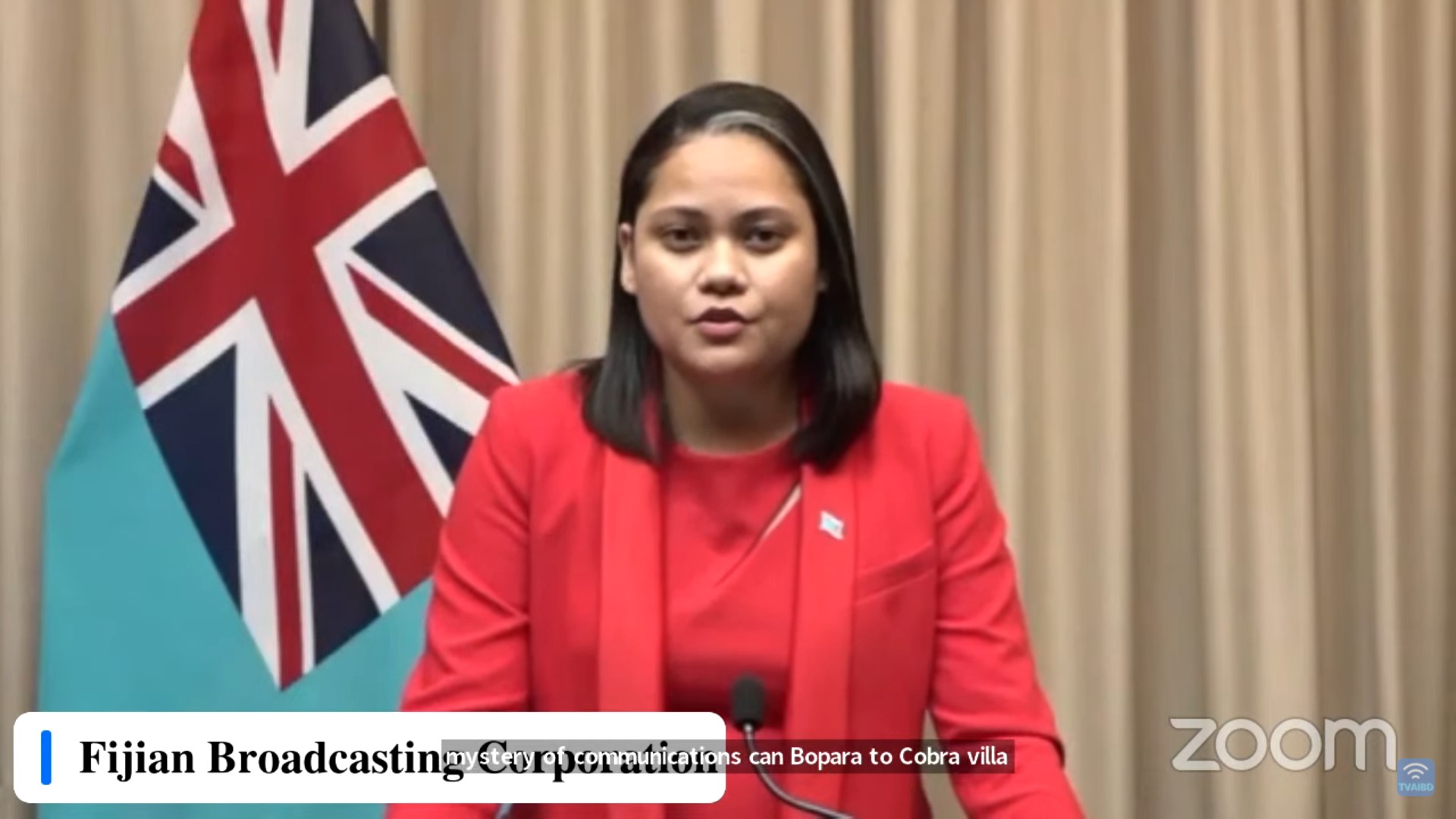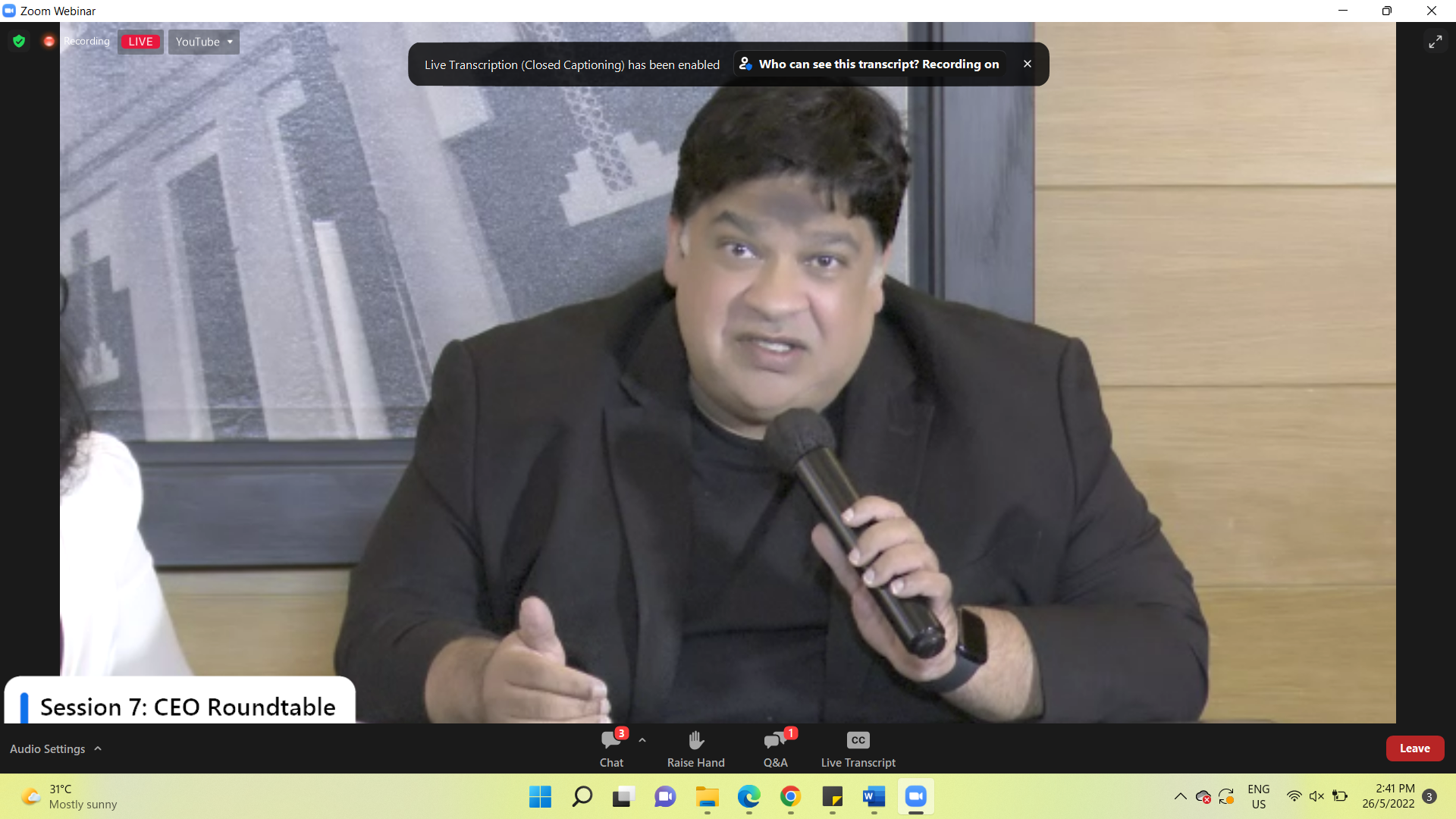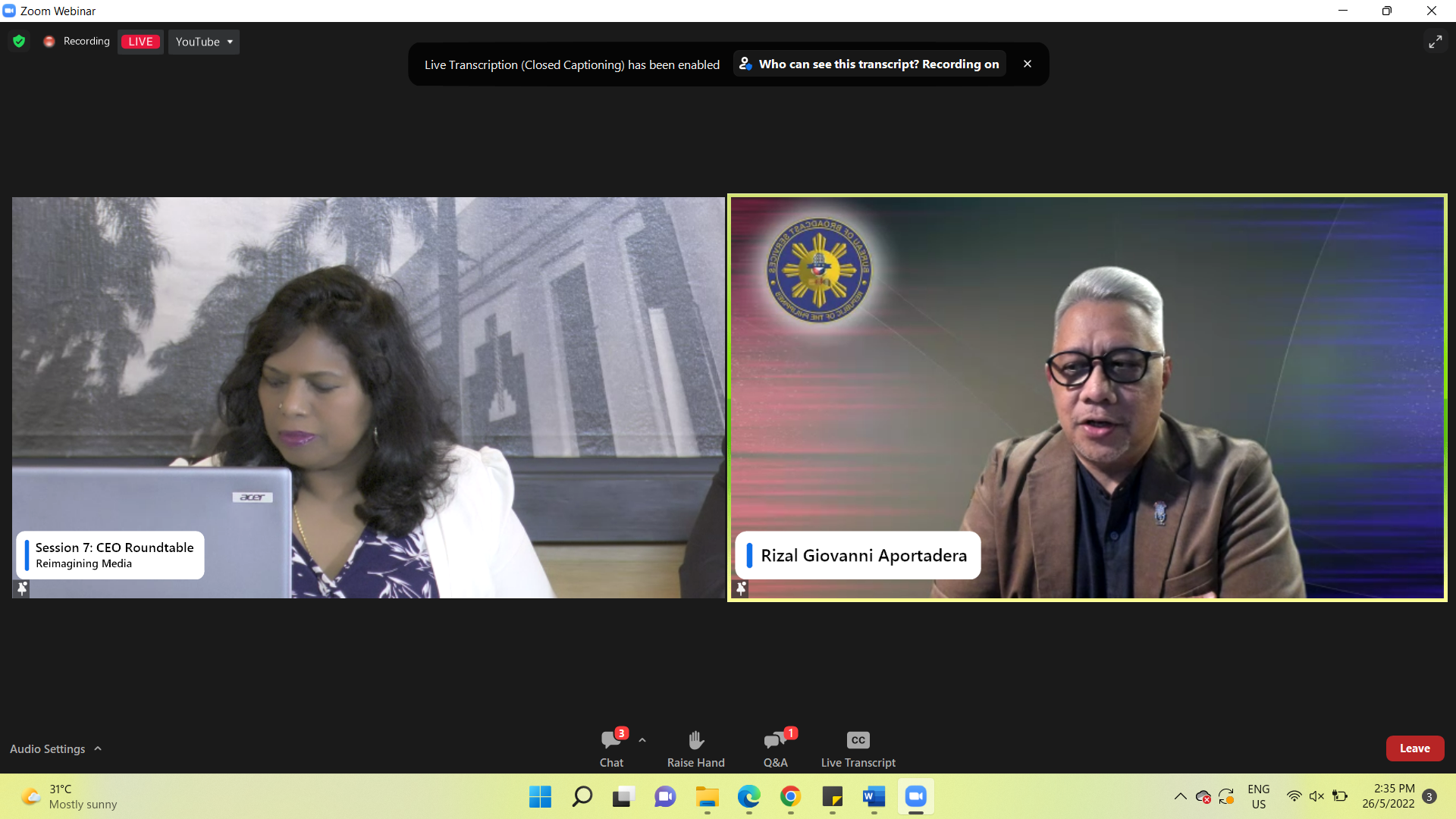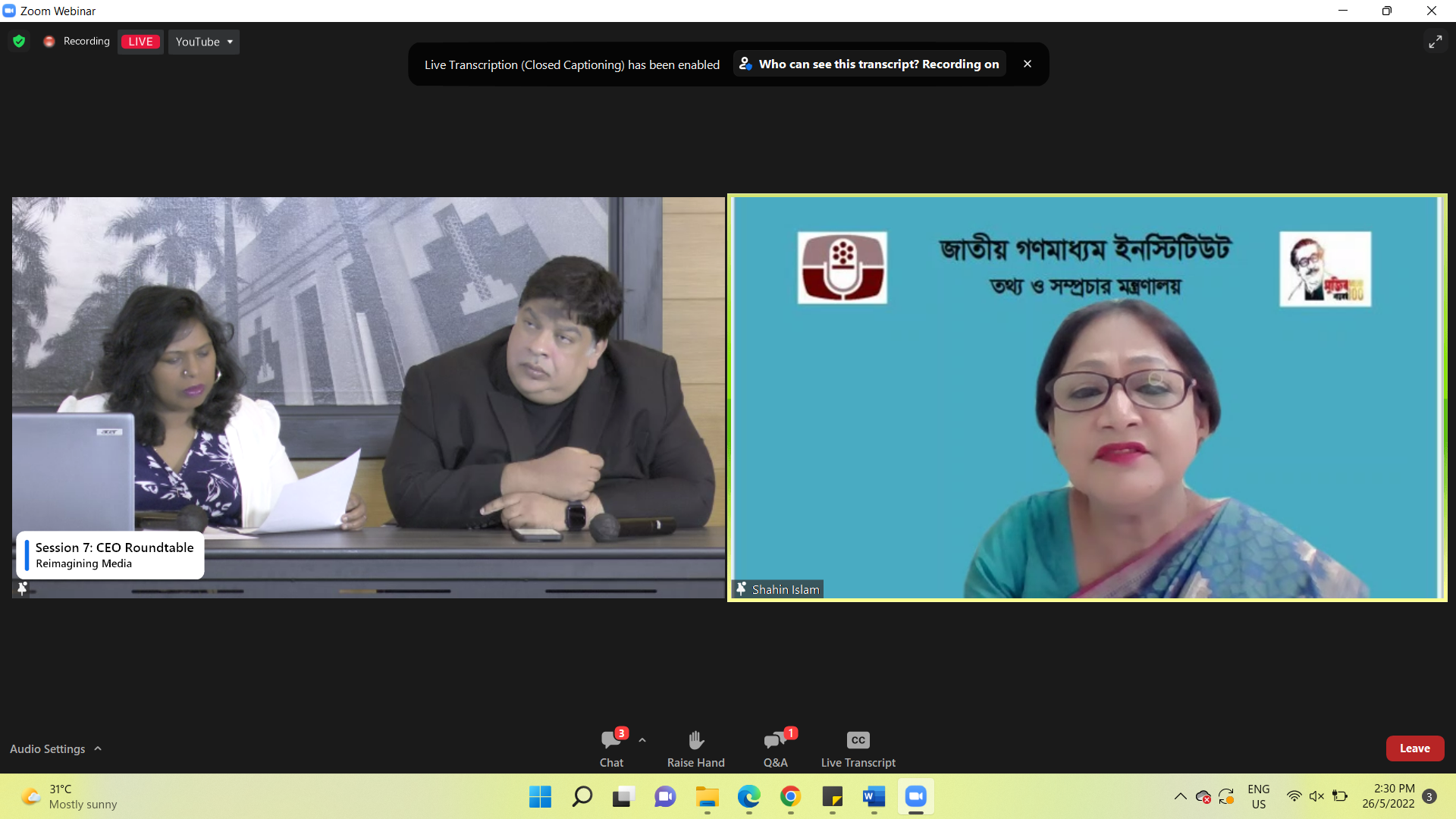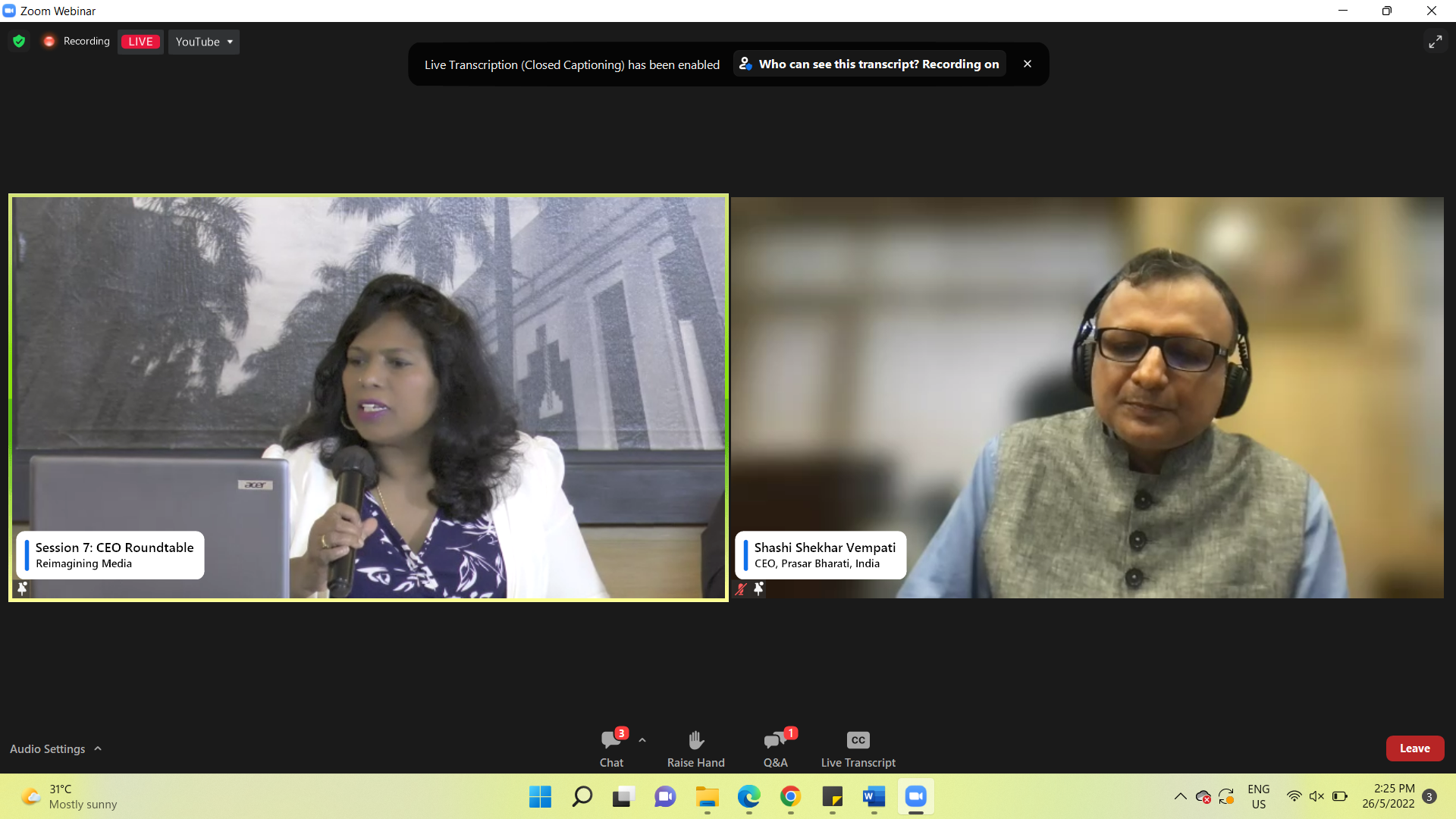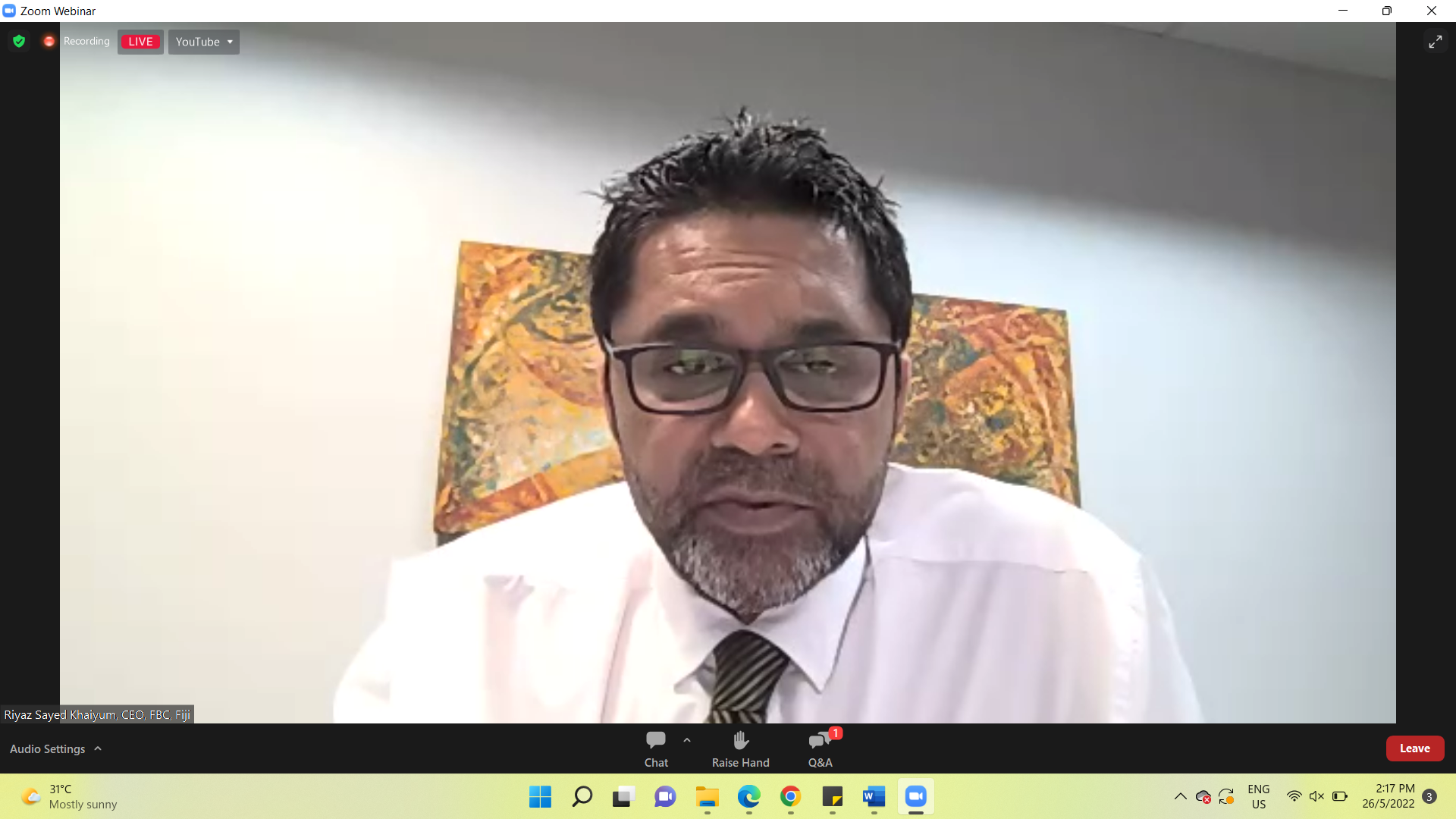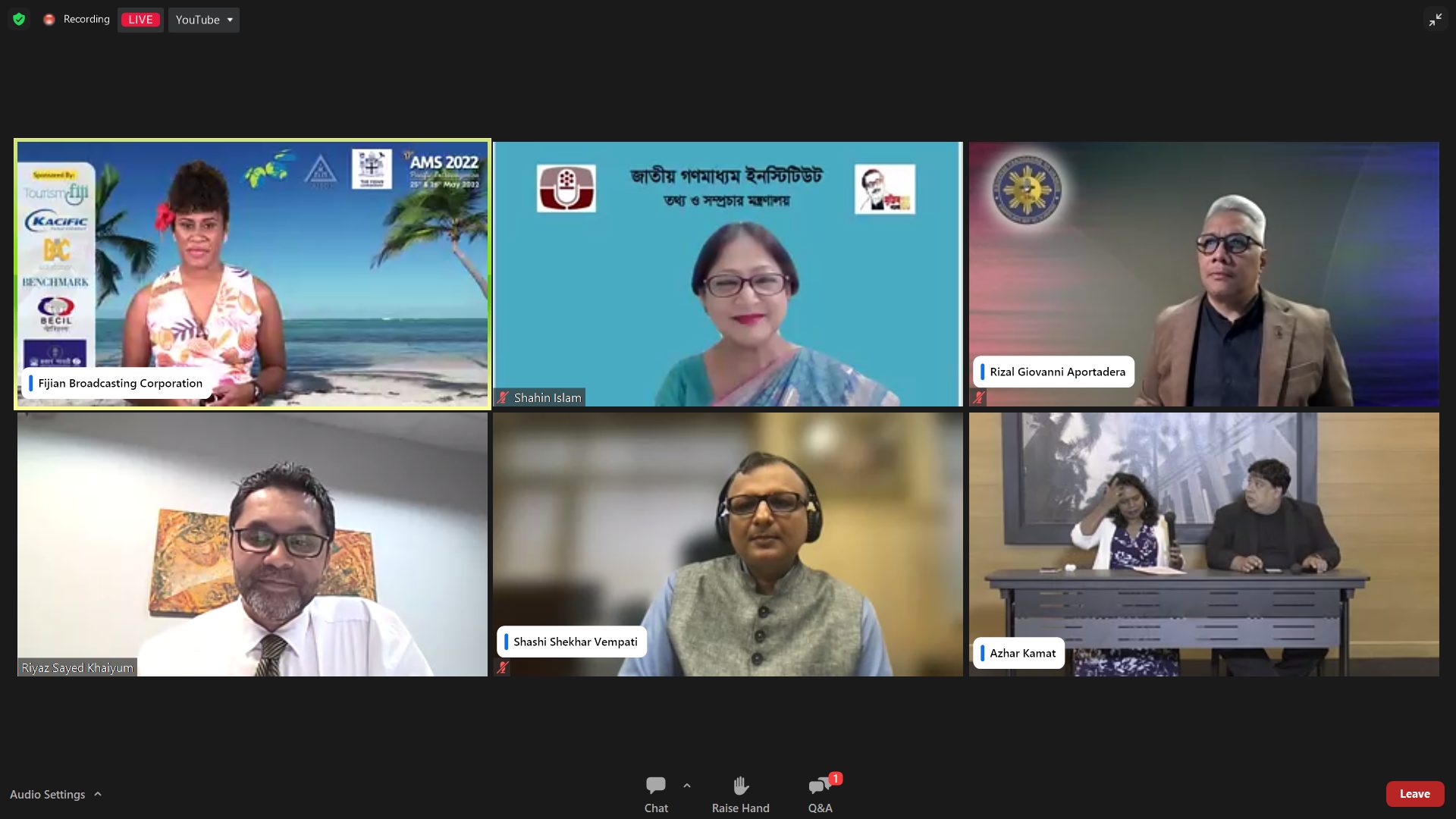Written by Mr Rohan Beg
Edited by Ms Monica Phang
The Ministerial Session witnessed five Honourable Ministers sharing their respective countries’ perspectives on Strengthening Media in a Changing World was moderated by Mr Tomas Lamanauskas, Managing Partner of Envision Associates, a public policy, regulatory and strategy advisor firm based in the United Kingdom. It started off a strong conversation with the Attorney-General and Minister of Communications, Republic of Fiji, H.E Aiyaz Sayed-Khaiyum, on how the island nations have adapted to the changing digital media landscape.

Honourable Minister emphasized the challenges of ensuring adequate media access in a country consisting of 300 islands of which only 110 are inhabited. Initially, network and Telco development was haphazard and inefficient due to monopolies in the local industry, but after opting for an open market approach, local access to media communications grew dramatically.
While the exorbitant costs of Telco development in sparsely populated areas is subsidized by the Fijian government, television access is also distributed by Walesi; a Fijian Government owned – digital TV company, responsible for providing free access to all Fijians.
The Fiji government also provides “Tele-centers” in select schools. Devices such as PCs and laptops are provided free for school use and members of the community can also partake of those devices after hours. An excellent example of a public sector effort to provide substantial media access to its citizens.
On the issue of how to combat misinformation in the media, the Minister of Information & Broadcasting (MIB) India, H.E Anurag Singh Thakur related his country’s experience. At the height of the COVID-19 pandemic, fake news had created an atmosphere of “extreme fear”.
India’s “Press Information Bureau” formed a fact-check unit that tackled fake news on a daily basis. State messaging by Doordarshan and All India Radio ensured that all relevant medical information and consultations were easily available to concerned citizens, which reduced vaccine hesitancy. Active collaboration between medical frontliners, NGOs and civil society were an essential part of the strategy.
The Honourable MIB Minister also made note of how the dissemination of correct information and cultural authenticity can be aided by “soft power”. Referring to the growth of India’s film industry as one such way that could be achieved in shaping public perception.

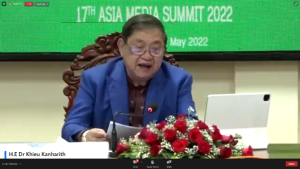
Similarly, Minister of Information (MOI), Cambodia, H.E Dr Khieu Kanharith remarked how there is no “one-size-fits-all” solution to the question of adapting to new digital landscapes. Communities in less developed countries such as Cambodia and Laos do not have access to digital infrastructure and rely on traditional media for awareness and entertainment.
However, that didn’t mean online misinformation wasn’t still having a severe effect on the country. The Cambodian Ministry of Information is in the mist of drafting an amended media law to help contain the “info-medics” and is conducting seminars and workshops to promote critical media literacy.
The Ministry also boasts its own “Anti-Fake News Committee”. Tasked to reduce the dissemination of fake news by verifying sources. A telegram group with 6,200 people from government offices, journalists, NGOs, youths and public sectors was created to serve as a fact-checking center.
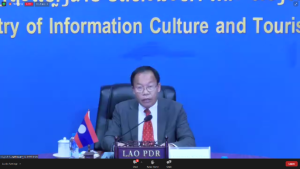
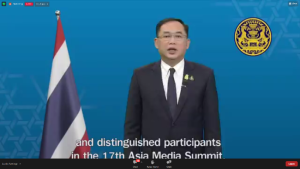
Deputy Minister of Information, Culture & Tourism, Lao PDR, H.E Ounethouang KHAOPHANH, stated that the Laotian Government has informed public and private media outlets to expand efforts to reach both urban and rural audiences equally in order to ensure access to accurate information.
In terms of amplifying broadcasting media’s authority over “alternative facts” go, the more comprehensive the plans, the better.
Minister attached to the Prime Minister’s Office, Thailand, H.E Anucha Nakasai mentioned how his country had established the 2022 National Action Plan for Public Relations. A grand vision to set the direction of Thai state media to function as a key pillar of public communication policy. One that promotes inclusion of all groups for more comprehensive data.
In accordance with Thailand being “APEC Host Economy 2022”, the Thai Prime Minister has emphasized the importance of communication and connection to all groups of people. In keeping with the theme of “Inform-Inspire-Integrate-Involve”.
For broadcasting to rediscover its potential in 2022, more than brute force will be required against misinformation. Rather the keywords are COLLABORATION and COMMUNICATION.
The session ended with a message of support from Matthieu Peyraud, Director of Culture, Education, Research and Network Coordination, France.
Ministerial Session 1 – Strengthening Media in a Changing World
Written by Mr Rohan Beg Edited by Ms Monica Phang The Ministerial
AMS Closing Speech by Director, Ms Philomena
Ms Philomena Gnanapragasam giving her closing speech for the closing
AMS Concluding Remarks by President of AIBD, Mr Mayank
Concluding remarks by Mr Mayank Agrawal AIBD GC President for
Closing Ceremony for 17th Asia Media Summit
The closing speech of the 17th Asia Media Summit is
AMS Session 7- Mr Raja Singham
Fifth speaker of our CEO Roundtable - Reimagining Media. Mr
AMS Session 7- Mr Rizal Govanni Aportedera Jr
The fourth speaker we have at our CEO Roundtable session
AMS Session 7- Ms Shahin Islam
We also have Ms Shahin Islam the Director-General of NIMC
AMS Session 7- Mr Shashi Shekar Vempati
CEO of Prasar Bharati India - Mr Shashi Shekar Vempati
AMS Session 7- Mr Riyaz Khaiyum
Mr Riyaz Sayed Khaiyum the Chief Executive Officer of FBC
Session 7 moderator- Ms Philomena Gnanapragasam
Session 7: CEO Roundtable - Reimagining Media. In this session,



